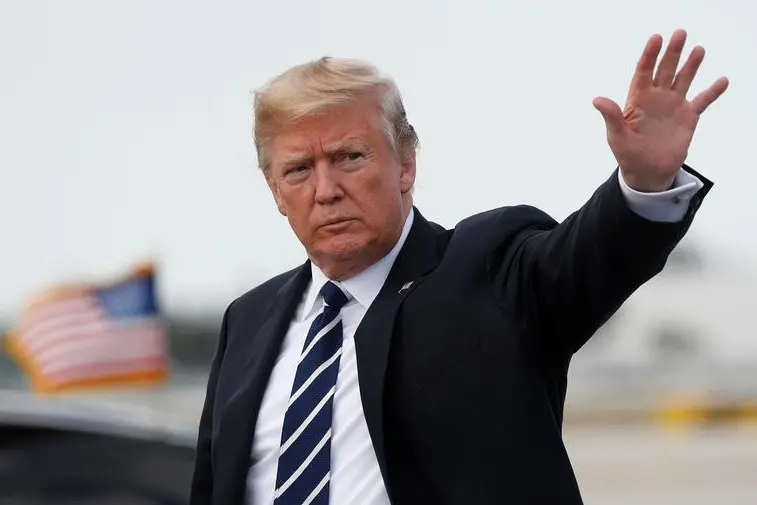PHOTO
LONDON - U.S. President Donald Trump is on the brink of triggering a transatlantic trade war with his plan to impose tariffs on steel and aluminium imports. That’s bad enough for the global economy. But by invoking a little-used national security loophole to justify his belligerence, he may be opening an even bigger can of worms.
The European Union’s trade commissioner, Cecilia Malmstrom, said on Wednesday the bloc was ready to react to Trump’s tariffs. One option is to put in place measures to ensure its markets aren’t flooded with steel and aluminium that might be diverted away from the United States. The European Commission has also drawn up a list of U.S. products worth 2.8 billion euros on which the EU could apply retaliatory tariffs. The value is the estimated amount that Trump’s tariffs might cost Europe, and features steel and aluminium. It also includes items such as Harley Davidson motorcycles, bourbon, and orange juice – some of which are produced in U.S. states that are important to the Republican party.
The United States takes 2 percent of global steel, according to Bernstein analysts, so a trade fight focused on metals and a select bunch of U.S. exports would inflict limited damage on the world economy. The danger is that Trump could escalate the fight, for example if he follows through on a threat to respond to any EU measures by increasing tariffs on imported cars.
Either way, a bigger peril lurks in the background. It’s rare for a country to use national security as a reason to justify trade measures such as tariffs. There have been only a handful of instances since the World Trade Organisation was founded in 1995. When this justification is given, countries would expect the matter to go no further, because national sovereignty in this domain is seen as paramount. As a result, the international trade body has yet to actually rule on any dispute in which national security is prominently cited.
Trump is changing the rules of the game. There are two risks if the WTO were to be forced to rule on whether his security concerns are legitimate. One is that the international trade body disagrees, and the U.S. throws global trade into chaos by quitting the body. The second is that it could rule in Trump’s favour – and invite others to follow his disruptive lead.
CONTEXT NEWS
- The European Union is ready to react to U.S. steel and aluminium tariffs but still hopes they can be avoided, European Commissioner for Trade Cecilia Malmstrom said on March 7.
- The European Commission on March 5 briefed representatives from the EU's 28 countries on a list of 2.8 billion euros worth of U.S. products on which it could apply a 25 percent tariff.
- The list is split fairly equally in value between steel products, consumer products and food and drink. The second category, worth just over 1 billion euros, included jeans and motorcycles, while the food and drink category, worth just under 1 billion euros, included bourbon whiskey and orange juice, EU diplomats told Reuters on March 6.
- U.S. President Donald Trump said on March 6 that the EU was taking advantage of the United States on trade and added: “They can do whatever they'd like, but if they do that, then we put a big tax of 25 percent on their cars - and believe me they won't be doing it very long.”
(Editing by George Hay and Bob Cervi)
© Reuters News 2018





















